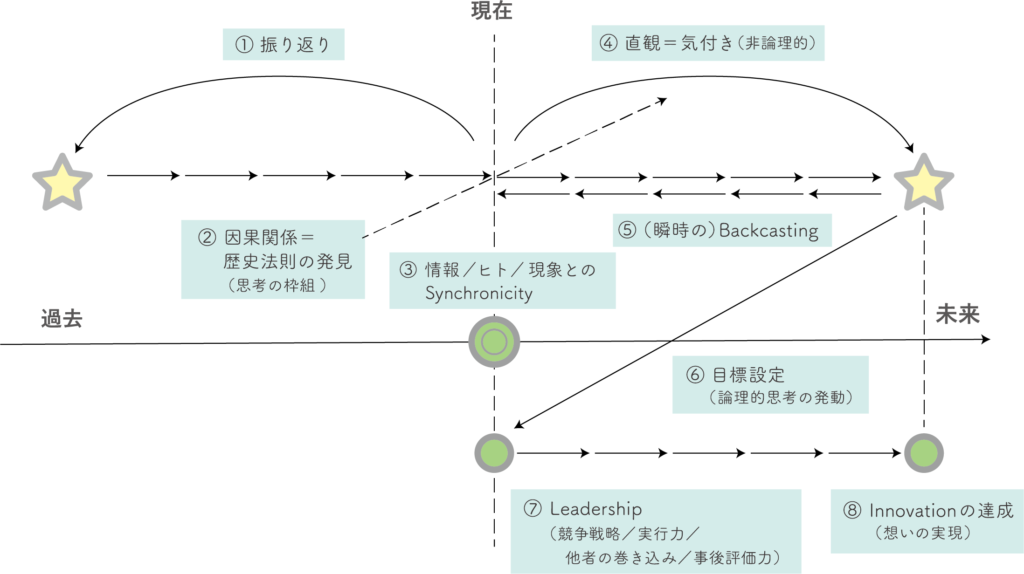Deepen public information through “Entrepreneurship Education”

Our institute has been participating in “UT-ONE”, a thematic course for first-year students at the University of Tokyo, since this year. “UT-ONE” is an entrepreneurship course offered by Ignite Your-Ambition, the Collaboration course of Sony Group and University of Tokyo, for freshmen in the College of Liberal Arts at the University of Tokyo. We accepted to have in total 26 students in this time as company visit.
Takeo Harada, founder and CEO of our institute, and staff from each department gave a presentation. When asked about international affairs and what they thought the world would be like in the future, the students presented their opinions, making full use of the knowledge they had gained from their studies up to high school and from the news and newspapers they had read through the media. Compared to other students, I was impressed by the breadth of their knowledge and interest.
Mr. Takeo Harada asked, “When was the State of Israel founded?” The answers by the students included the fact that Israel announced its declaration of independence on May 14, 1948. For the next question, “How much is a bank deposit guaranteed?” They answered “It’s up to 10 million yen.” However, when they asked, “What is the relationship between Israel and North Korea?” or “What do you think about the fact that up to 10 million yen is guaranteed?” Mr. Takeo Harada told them “In this period, it is essential to develop entrepreneurship.” At the time, I felt that the students were at the door to deepen the public information and more curious about “future”.
In Japan, the number of students taking entrepreneurship education at Japanese universities (bachelor and master) is 30,000/3 million as of the end of 2019, which is only 1% of all university students [Ministry of Education, Culture, Sports, Science and Technology 21]. The ranking of entrepreneurship in the world [Szerb, László, et al. 20] places our country in 26th out of 137 countries. Other rankings by the same index are up to 25th, suggesting that our country is still a bit behind the world leaders.
(Figure1:The Global Entrepreneurship Index Rank of All Countries, 2019)

The three key components of entrepreneurship are “Attitude,” “Abilities,” and “Aspirations. The report also includes the following comments.
“The United States leads in the Attitudes sub index, followed by Netherlands, Canada, Iceland, Finland, Australia, the United Kingdom, Switzerland, and Hong Kong. Japan (not amongst the best 25) has low attitudes toward entrepreneurship as families do not encourage entrepreneurship for young people.”
Attitudes in this sense consist of five items: (1) Opportunity Perception, (2) Startup Skills, (3) Risk Acceptance, (4) Networking, and (5) Cultural Support. I will not go into the details of each of these, but it is true that entrepreneurs/students who are inspired to create something new are rare in Japan, and people around them are often more concerned about the risks than encouraging them to do so.
(Figure2:The Entrepreneurial Ecosystem Configuration)

Our institute believes that what is needed for true leadership is entrepreneurship education, including “information literacy” education. What is needed in this context is the framework of thinking shown in the figure below.
(Figure: Whole picture of analogous information literacy)

In the above diagram, an accurate grasp of history, including the structure of interests, and the input of a vast amount of knowledge are essential for ①looking back and ②discovering causal relationships = historical laws (framework for thinking). In addition, ④Intuition = awareness (illogical), which is illogical thinking that only we “humans” are capable of. Therefore, even if AI (Artificial Intelligence) with its huge database can predict the future, it is impossible for AI to replace the part ④ which is based on human’s intuition. In a society where AI is being updated, it is almost certain that the part of “awareness” that only we “humans” can do will become more and more important.
In short,
(1) Learn as much as possible about the correct past,
(2) Make fixed-point observations about the present,
(3) Backcast the future as a result of these observations, and
(4) Logical thinking by “deduction” and “induction”
(5) Creating a new reality for the future by involving others and practicing as a player by oneself.
This is what we call “information literacy,” and it is a concept that we hope more and more people will learn and practice together.
Now, here you have three small stones on your hands. Imagine that you are about to throw them into a quiet pond. When each stone touches the surface of the water creates three ripples, and eventually the three ripples overlap. I believe that this part is important for thinking about the future.
When we compared this to the “future scenarios” which we provide in the real world, it is possible to make more accurate “future predictions” by observing from various angles how the ripples created by public and non-public information. When this is accomplished, we will be able to confront the reality of the moment, having stepped forward into the future. It is clearly more advantageous in life to face future events with a firm stance than to face them suddenly. Entrepreneurs, as we call them, are creating their own future scenarios as precisely as possible by using the framework of thought shown in the above diagram. What does your future scenario look like? I would also like to ask myself this question once again.
Corporate Planning Group, Maria Tanaka
[References]
・[Harada 15] Takeo Harada, 「世界を動かすエリートはなぜ、この『フレームワーク』を使うのか?」, Kanki Publishing Inc., 2015.
・[Szerb, László, et al. 20] Szerb, László & Lafuente, Esteban & Márkus, Gábor & Acs, Zoltan. (2020). Global Entrepreneurship Index 2019. 2020.
・[Ministry of Education, Culture, Sports, Science and Technology 21] Ministry of Education, Culture, Sports, Science and Technology, アントレプレナーシップ教育の現状について, 2020, 20210728-mxt_sanchi01-000017123_1.pdf (mext.go.jp), (Accessed 29 May. 2024.)


